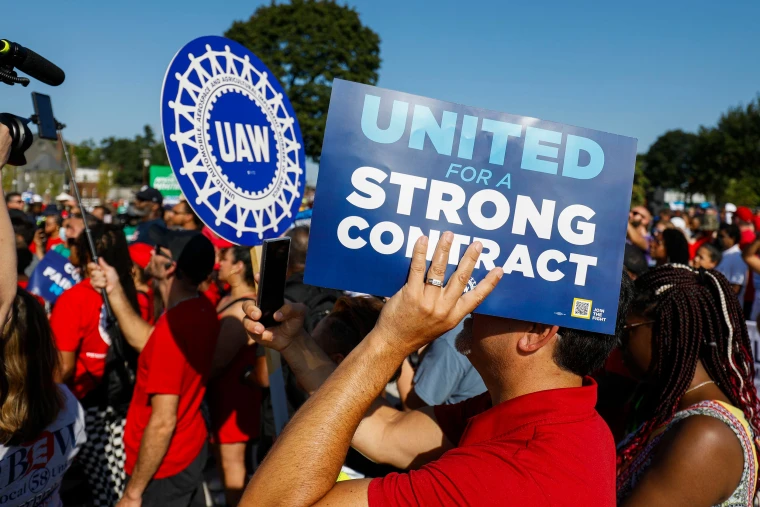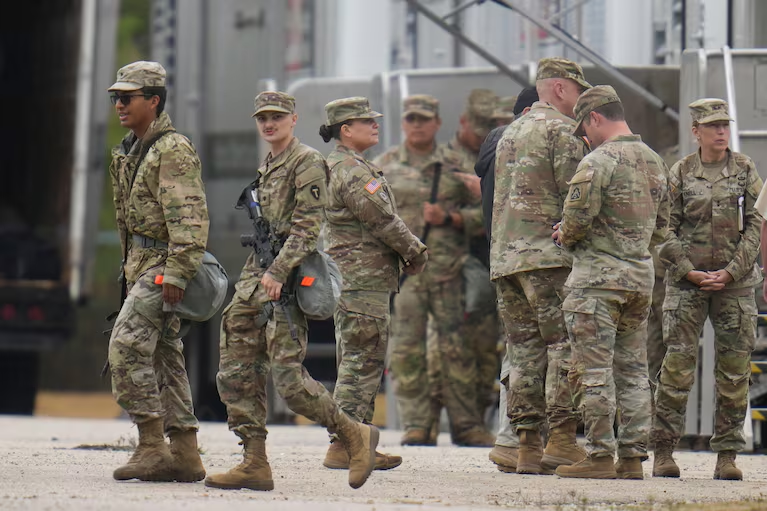The United Autoworkers Union (UAW) has been preparing for the possibility of a strike happening with the deadline of their contracts with General Motors, Ford and Stellantis, commonly known as the “Big Three,” ending on Sept. 14. The UAW’s President Shawn Fain has made it clear that while their intention isn’t to strike, they will resort to this action if an agreement with these companies is not made by the end of their contracts.
“The goal is a fair and equitable agreement for our members. At the end of the day, if we are not there, there will be a strike,” Fain said.
Some of the UAW’s demands include a 32-hour work week with pay for 40 hours, the return of pensions and the removal of tiers of workers, which has new hires making lower wages when hired and gives them a lower maximum possible wage compared to old hires. While there have been many demands from UAW members, President Fain understands not all demands will be met, and he recognizes concessions will have to be made.
This issue of the fast-approaching deadline with no deal has been in part due to what Fain describes as “an illegal refusal to bargain in good faith” from GM and Stellantis. The companies neglected to respond with counter-offers to the UAW’s demands.
With no counter-offers from the Big Three, union negotiations could not commence.
The UAW is demanding a 40% hourly wage increase and a return of cost-of-living-adjustments (COLA). Ford responded with a 9% wage increase throughout the contract and a single bonus instead of the COLA.
As each day passes, the chance of a strike happening seems more likely. However, the UAW seems to believe they have the leverage and energy needed to win the impending strike.
The energy from the UAW was palpable during the recent Labor Day parade. Thousands of union workers from different unions participated in the event, proclaiming solidarity in the shared struggle for economic and social justice.
Multiple elected officials in Michigan such as U.S. Rep. Debbie Dingell, D-Ann Arbor, and U.S. Sen. Representative Debbie Stabenow, D-Michigan, joined in supporting the UAW’s efforts. This public support has done much to bolster the confidence and spirit of the UAW workers as they face a seemingly inevitable strike.
With the potential strike, there are some concerns about what it could mean for the larger economy of not just Michigan but the U.S. as well. Among those concerned are suppliers who work with these Big Three motor companies.
If the strike were to happen, this could mean a lot of lost business for many suppliers. The strike could halt many systems that rely on the auto industry since trucking makes up a lot of transportation of goods many industries rely on.
While there is a possibility of a strike harming the economy, especially among suppliers or other sectors, the UAW understands all of their demands will not be met, and they have said they don’t want a strike to happen either. At the same time, the Big Three automakers have stalled and have made little attempts to productively negotiate the terms of the contract.









